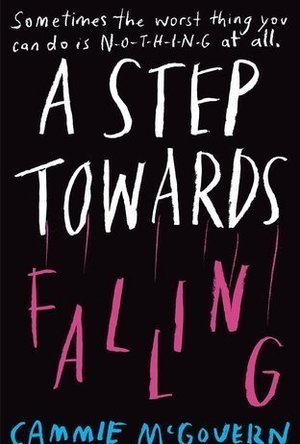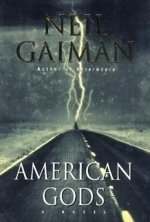
How to Build a Billion Dollar App: Discover the secrets of the most successful entrepreneurs of our time
Book
'A must read for anyone who wants to start a mobile app business' Riccardo Zacconi, founder and CEO...

The Other F Word: How Smart Leaders, Teams, and Entrepreneurs Put Failure to Work
John Danner and Mark Coopersmith
Book
Leverage the power of failure in your organization Nobody wants to fail, but failure is a fact of...

Design & Analysis of Clinical Trials for Economic Evaluation & Reimbursement: An Applied Approach Using SAS & Stata
Book
Economic evaluation has become an essential component of clinical trial design to show that new...
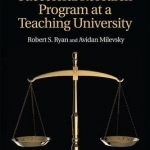
Launching a Successful Research Program at a Teaching University
Robert S. Ryan and Avidan Milevsky
Book
This practical guide addresses the challenges for building and maintaining a college research...
Hazel (1853 KP) rated A Step Towards Falling in Books
Dec 14, 2018
<i>This eBook was provided by the publisher via NetGalley in exchange for an honest review
A Step Towards Falling</i> by Cammie McGovern is a book full of important messages. As with a couple of her previous novels, McGovern writes about characters with developmental disabilities, i.e. Autism, focusing on the ways in which they interact with the world around them and vice versa. This particular story is written with teenagers in mind, featuring topics such as dating and future prospects.
One of the narrators Emily, along with high school football player Lucas, are being punished for not helping a disabled student when they witnessed her being assaulted. In order to appease the school they are subjected to forty hours of community service – voluntarily helping to run the Boundaries and Relationships class at the Lifelong Learning Centre. Here they meet a handful of people with disabilities who need help to identify what is and what is not acceptable in potential romantic relationships. Although Emily and Lucas initially think members of the group are strange, they soon learn to see through their quirks and admire them for their positive personalities.
The second narrator, Belinda, is the assaulted girl. To begin with she is no longer attending school as her grandmother has deemed it an unsafe place. Belinda describes her life with childlike innocence, naively believing she is like everyone else and not understanding why she never receives the same privileges, e.g. joining after school clubs, getting a job. Whilst she slowly regains her confidence to return to school, Emily and Lucas begin to enjoy working at the LLC, however continue to feel guilty, as they are aware that although they are doing a great job, it is not doing anything to make Belinda’s life better. So, they aim to change that.
Although relationships feature heavily in this novel, <i>A Step Towards Falling</i> is largely based on similar themes to Jane Austen’s <i>Pride and Prejudice</i> – incidentally Belinda’s favourite story. Each key character have their own prejudices towards other people and act as though they are better than everyone else. Emily instantly judges Lucas to be a popular, uneducated boy due to his position on the school football team. Likewise, Lucas judges Emily for hanging out with “nerdy” people who only care about grades and getting into good colleges. Belinda, despite being different due to her disability, believes she is better than other people in her class because she can read and use a computer, whereas many can barely string a sentence together.
What McGovern is stressing throughout this narrative is the importance of getting to know someone first instead of arrogantly assuming you know exactly what they are like based on appearance. As can be revealed in <i>Pride and Prejudice</i>, someone who appears rude and distant may actually have a lovely, kind and considerate personality. Emily and Lucas learn this quite quickly, and Belinda is not far behind them. It is a shame that not many other people are as swift to realize this.
Although <i>A Step Towards Falling</i> is a work of fiction it deals with issues that many high school students, and even adults, face even if they do not realize it. Football players are often presumed to be unintelligent, likewise clever, “nerdy” people may come across as distant and uncaring. The worst thing that most, if not all, are guilty of is the presupposed belief that developmentally disabled people are weird and to be avoided. This is entirely false, as McGovern reveals; they have the right to the same life as anyone else, the only difference is they may take longer to learn what comes naturally to most people.
As a novel, <i>A Step Towards Falling</i> is a fairly gentle read about completely realistic events. Although there are references to Belinda’s assault, there is nothing majorly distressing. On the other hand, it is a bit too plain sailing, with no climax to speak of. Through her attempt to create an accurate representation of disabled people, McGovern fails to grip the reader or create excitement. There is no suspense or anticipation, which unfortunately makes the book a little disappointing.
Overall the story line may not be the most thrilling however it has a powerful voice and a satisfying ending. All teenagers, and adults too, should read this book and become more mindful of their behaviour and prejudices. Naturally this is not something that will be easy to completely eradicate, but as this book reveals, once you are aware of your inaccurate impressions it become easier to accept people the way they are, and become confident in getting to know their true personality.
Kyera (8 KP) rated The Prisoner of Cell 25 (Michael Vey, #1) in Books
Feb 1, 2018
The overall idea of this story was very intriguing, although I found the writing to be lacking at times. One of the biggest elements that drew me out of the story was the author's inability to choose a word other than <i>said</i> to describe when a person was speaking. It became frustrating to listen to the characters talk when the entire page just repeated, "he said... she said... then they said... he said again." By that point, I was pretty over the word said. It definitely detracted from the story, which I found enjoyable overall.
It was definitely very trope-y, but that's not necessarily a bad thing - it completely depends upon your reading preference. I personally enjoy some tropes but when they're overused you tend to connect with the characters less because they're no longer unique. The biggest one for me in this book was the characterization of our three leads and how one dimensional it made them. I don't want to spoil the story, but once you read the book you will understand my issues with the characterization. I would love to see more character development over the next few novels.
As there are six other books in the series, I expect that the character development and world building will be improved upon. It wasn't until the end of the book that I started to feel more of a connection to the characters and curiosity about the world. The author definitely writes for a younger audience; the writing style was not as developed or mature as I would expect for a young adult reader.
I would recommend it to middle-grade readers, as well as young adult/teen readers who enjoy their fantasy books in a familiar setting. Don't expect flowery writing or deep characterization, just let the story take you on a fun, easy journey.
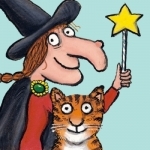
Room on the Broom Games
Education and Games
App
BAFTA NOMINATED GAME based on the No.1 Halloween children's picture book! **Perfect for 3 - 7 year...
Rachel King (13 KP) rated American Gods in Books
Feb 11, 2019
While the names of classical mythology fit into the category of the Old Gods, there are New Gods that have taken root in America, born from cultural obsessions that have evolved and devolved over the years, such as railroads - a man dressed as a railroad conductor, television - a voice talking through Lucille Ball on a rerun of I Love Lucy, vehicles - stocky men that seemed to resemble vehicles themselves, and internet - a short, nerdy, nervous kid, among other American fixations and stereotypes.
In addition, one of the scenic devices used throughout the plot is what Gaiman's characters describe as places of power - side-of-the-road dives that road-trippers visit for no apparent reason, such as a place boasting the largest doll collection in America or the biggest wheel of cheese. And no, Disneyworld is not one of them.
One of the things I found interesting about this Gaiman-born world is that the Old Gods only exist in the New World when regular people travel from other countries and bring their memories and practices with them, even when they don't intend to stay themselves. The gods are "born" from these average people, and even though they can be killed by others, they don't die otherwise, but instead alternately starve or thrive based on the behavior of the people who live and die in the New World. They all have counterpart manifestations of themselves in the countries they are pulled from, but one's existence does not affect the other - though they do seem to be aware of each other.
All of this is merely the background of the main plot, which centers around the activities and travels of a seemingly mortal man with a single name, Shadow. I never did "get" the one-name thing, but whatever. Through Shadow's narration, the reader learns of an impending storm - a battle between the Old Gods and New Gods, the former fighting for survival and the latter fighting for dominance. Shadow works for a mysterious "Mr. Wednesday" and is randomly haunted by his dead wife, Laura, but otherwise seems to have little drive of his own for most of the book. In fitting irony, he has his own brand of "magic" - an obsession for coin tricks to pass the time from his days spent in prison - which I could never really follow the descriptions of.
To be completely honest, I truly did enjoy this book, though I am struggling to say exactly why. Perhaps I was fascinated by the "shadowy" way that Gaiman told the story, or how he developed this over-the-hill world of gods and goddesses that better resembled America's middle and poor classes' struggles for survival, money, and influence. Some of the personal touches that Shadow's character added to the plot made him at times surprisingly endearing. In addition, the way that Shadow seemed to address the reader at the very end of the book was so satisfying that I laughed out loud and had to read it again several times. Something about that just brought the book to life for me and help me to fully appreciate the versatile style of Gaiman. This is one of those books you don't have to fully understand to fully appreciate.
EU Competition Law and Economics
Damien Geradin, Anne Layne-Farrar, Jorge Padilla and Nicholas Petit
Book
This is the first EU competition law treatise that fully integrates economic reasoning in its...
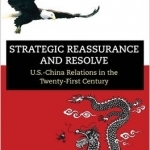
Strategic Reassurance and Resolve: U.S.-China Relations in the Twenty-First Century
Michael E. O'Hanlon and James Steinberg
Book
After forty years of largely cooperative Sino-U.S. relations, policymakers, politicians, and pundits...
